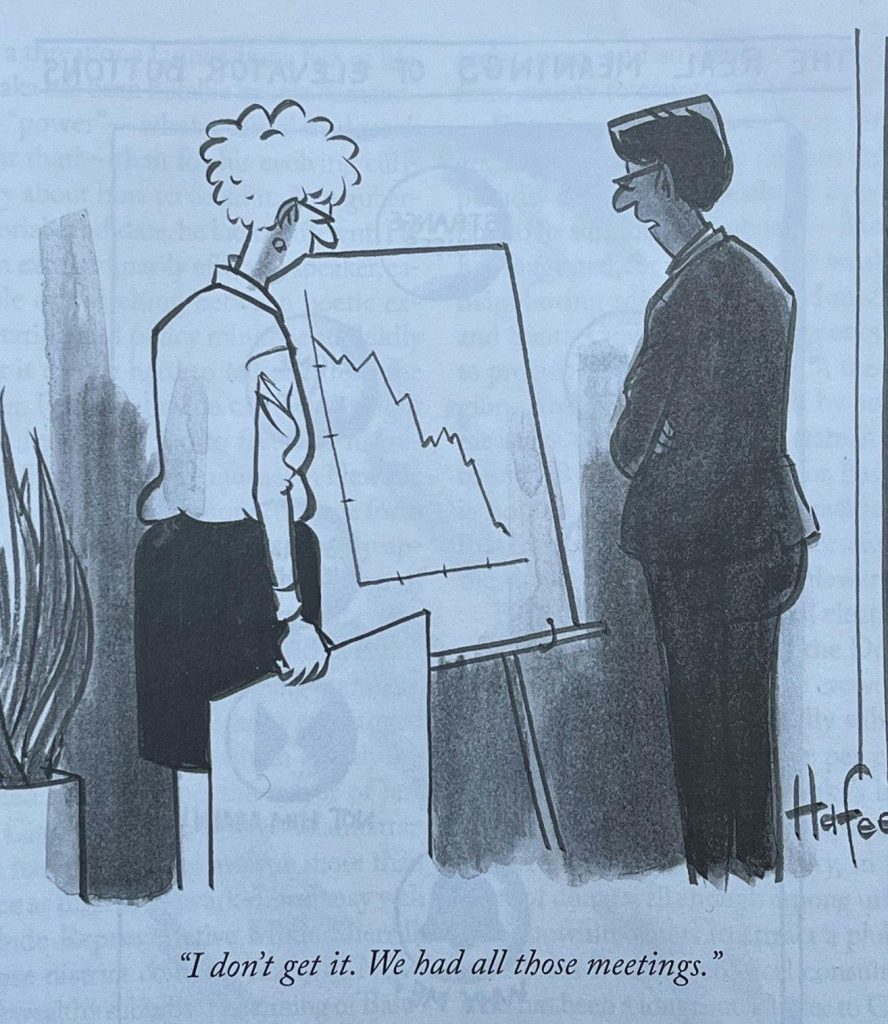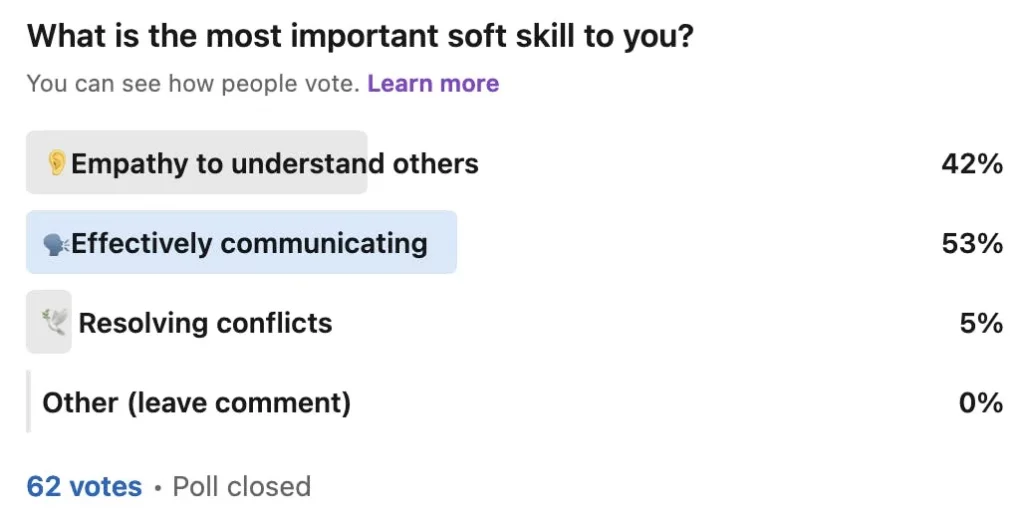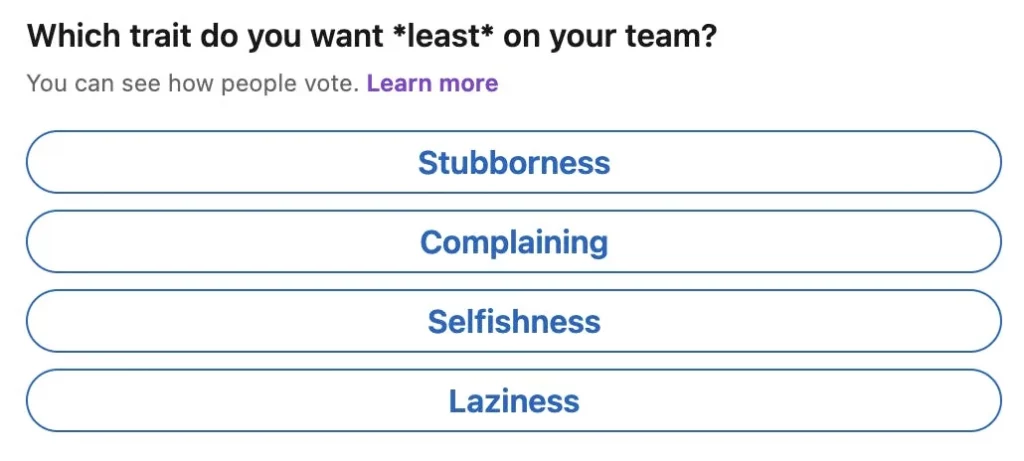How are you doing on your annual goals? One of the things I love about the 12 Week Year process I use, is that essentially you get 4 shots at your annual goals; by setting them quarterly, and taking time to reflect on them each quarter, you can course correct and hopefully hit them.
For me, not everything went as I planned, but I have renewed energy heading into Q4, because I know I have one more 12-week year to hit my goals. I've also been able to adjust them; they're not all the same as what I set in January, and that's okay. I have new information and learnings I didn't have then.
Regardless of your planning process, now is a good time to check in on your 2024 goals and plans:
- How are you doing on your goals?
- Of the ones that aren't complete, what can you do to achieve them before the end of the year?
- Which of them should you change or adjust to best take advantage of the time you have left?
Even 20 minutes of reflection can make a big difference.
In today’s edition, we talk about committees, and why many leaders try to avoid them, discuss the changing views of CEOs on the return to the office debate, and commemorate a 20-year anniversary by looking at leadership lessons from it.
Let’s dive in…
Table of contents:
- 🥘 Food for Thought on Death by Committee and the Meeting Plague
- 📰 News & Reports for Managers on CEOs and the Return to Offices
- 📖 Your Leadership Long Read on Lessons from a 20 Year Anniversary
- ❓ Poll of the Week on Traits You Want Least in Your Team
➡️ Did a friend forward this to you? Get every issue straight to your inbox by signing up here.
Note: This is a preview of our weekly leadership newsletter, Lighthouse Leadership Weekly (LLW).
To get this sent to your inbox every week, along with our latest long form essays on this blog, you can sign up here.

🥘 Food for Thought
"One of the keys to Apple is Apple’s an incredibly collaborative company. You know how many committees we have at Apple? Zero.
We have no committees...One person’s in charge of iPhone OS software, one person’s in charge of Mac hardware, one person’s in charge of iPhone hardware engineering, another person’s in charge of worldwide marketing, another person’s in charge of operations." - Steve Jobs, co-founder of Apple
I was reminded of this quote from Steve Jobs when I saw this tweet come across my Twitter/X feed:
Decision making speeds up when less people are responsible for making a decision. This is lost on people who have normalized making decisions by committee.
— Hiten Shah (@hnshah) October 8, 2024
This is a really underrated piece of advice.
Too often, the temptation is to loop in lots of people when there's something important going on with a project. Yet, doing so can slow everything down.
Too many meetings (and the committees formed that scheduled them) can lead to this comic becoming your reality:

That's why it's important to be mindful of how decisions are made on your teams, and how you handle problems.
To avoid death by committee (or its cousin, death by meeting), consider these approaches:
1) Name DRI's (Directly Responsible Individuals):
The DRI gives you one person who has final say on items and is specifically responsible for the outcomes of a project, metric, or task. Naming them clearly, so everyone knows, can help avoid the worst impulses of committees that want consensus from a large group of people.
It also builds a strong habit of accountability on your teams; when one person is clearly the DRI, they are also then the person that owns the result or outcome. Too often committees dodge this sort of responsibility, because everyone can pass blame to others on the committee (or blame the committee itself as some type of blog entity), and it's hard to know what to do about it.
2) Ask for feedback & input, not shared decision making:
Part of the reason committees are so tempting and people advocate for them is they feel that they ensure everyone's voices are heard.
Yet, the problem typically is that these same committees lead to water-down solutions that over-index on consensus and play it safe. Those lead to lower quality results and often debates that drag things out much longer than if one person had to simply make a call.
To solve this, the key is to ask for feedback and truly listen, while not giving up decision making power.
You want to hear the perspectives of the people you'd put on a committee, but retain the ability to decide what you do and do not want to incorporate from what they tell you. This approach should be familiar, because it's how we talk about getting buy in from your team.
Make it a habit to seek out these perspectives, and you'll see a noticeable decrease in the suggestions for committees.
3) Choose your focus wisely:
One of the other hidden problems on committees is that each person on the committee will bring a different priority to the discussion. This push and pull is a big part of why committees can't make fast, high impact decisions; if I really want X and you really need Y, then we are likely to end up with a decision that gives a little bit of each, but not a big win for either.
If you then multiply this across a large committee, you may have as many as a dozen competing priorities, all trying to influence a project and the decisions made.
The question then becomes: Do you want to kick 10 cans down the road once, or 2 cans each 5 times? Which gets further along faster and really moves the needle?
Focus can come from choosing the DRI over a committee approach, and it's equally impactful to focus your efforts and goals, too. Work to move the needle on a few of your most important problems or metrics, not a dozen different ones, or no clear ones at all.
---
It can be hard to change a culture that is full of committees, but the first step is to set the example by reducing how many committees your teams form, and bringing focus and accountability to your most important projects.
Do you suffer from too many committees? How do you handle them?
📰 News & Reports for Managers
📌 Nearly 80% of CEOs expect *all* office workers who are currently hybrid to be in office 5 days a week soon
Is the end of the remote work wave coming? It appears CEOs believe that it may be the case as those surveyed by KPMG. revealed:
"This years’ findings reveal that CEOs are hardening their stance on returning to pre-pandemic ways of working, with 83 percent expecting a full return to the office within the next three years — a notable increase from 64 percent in 2023.
And this expectation only increases with age: 75 percent for those aged 40 to 49, 83 percent for those aged 50 to 59, and 87 percent for those aged 60 to 69."
Even if you assume the old guard will retire before they can mandate a full office return, even the CEOs that are aged 40 to 49 are now expecting it; 75% is still a strong majority of those leaders.
Yet, we've heard this push before, and it will be interesting to see if things work for Amazon with their recent push; if they succeed in bringing employees back to the office as they recently mandated, you can expect many others to follow.
If instead, Amazon suffers a serious attrition issue, or so many employees refuse that the initiative fails, then the return to the office trend will likely be set back again.
Yet, most important for readers like you is this insight:
"87% of respondents say they are likely to reward employees who make an effort to come into the office with favorable assignments, raises or promotions."
Put simply; 9 out of 10 CEOs will reward you if you're one of their employees who does come into the office.
If you love your current role and compensation, then you have nothing to worry about. However, if you're hoping to advance, and you're all in on remote work, realize you're going to have an uphill battle at most companies. All things equal, they're going to choose the person they get face time with over you.
What do I predict will happen with remote work?
Here are my thoughts on this trend and where I think we're going with the remote vs. in-office debate:
- For big companies, office time will grow: When I look at people I know who take advantage of remote work vs those who treat it like a privilege, those who don't work as hard at home tend to be at bigger companies. Ironically, big companies are also the ones most likely to be able to access data that reveals this work disparity, which is why I believe big companies will keep pushing for more office time.
- For small companies, they'll need to decide from the start: The worst choice is to be hybrid, so the best thing any small company can do is be all in on remote or committed to building an in-office culture. Don't split the difference, or you end up with all the problems we've written about.
- For top performers, nothing changes: If you are a star and/or your company can't afford to lose you, just about every company will make exceptions. That will always be the case, but means you need to keep delivering and make sure you stay indispensable; I now understand why some engineers I met as an intern were extremely helpful, except when it came to teaching others how to do their very narrow job responsibilities.
- For junior employees, this will really help: Over the last 4 years, junior employees have suffered the most with remote work. It's much harder to get mentorship and support when you're not in an office sitting near your manager and peers. With advancement in AI, you can now have an infinite coach at your fingertips for some things, but nothing is better than the people who will evaluate your performance also being invested in your growth and success. That means a return to office would still benefit junior employees.
- The pressure will be highest for leaders: If you want to be an IC, nothing changes. If you're great at what you do and want to stay on that track, you should have no problem staying where you are, or finding another role at another company if necessary. However, if you want to advance as a leader, face time will increasingly matter again, so you'll need to prioritize creating more of it.
Yet, everything I said is kind of hedging. It shows a half-in, half-out world where there is some remote and some return to the office. If you want something more specific, here's my more specific bet, based on macro economic conditions:
- If the US economy gets 📈 stronger the next 4 years: there will be more startups, and greater competition for talent. That means there were will be more remote work permitted because it's necessary to compete.
- If the US economy gets 📉 weaker in the next 4 years: there will be fewer startups, and it will be a buyer's market for companies. That leverage means that companies can call the bluff of their employees who don't want to come back in the office and more easily replace them. That means more in-office mandates and fewer remote opportunities.
What trends are you seeing in the return to office vs. remote work debate in your industry?
Hit reply and let me know.
📖 Your Leadership Long Read on Leadership Lessons on a 20 year Anniversary
Next week is the 20 year anniversary of one of the greatest comebacks in sports history: The 2004 Boston Red Sox recovering from an 0-3 deficit to beat the New York Yankees in Major League Baseball's American League Championship.
I was a freshman at Northeastern University living in downtown Boston, just a half mile from Fenway Park when this happened. I still remember the late-night watch parties, the dramatic wins,...and collecting the Boston Herald covers after each dramatic win.
Looking back 20 years later, it's a great time to reflect on why that team of self-proclaimed "idiots" did the impossible and came back to win 4 straight games against a stacked Yankees lineup.
If you love baseball, this is the perfect crossover leadership post for you.
Yet, even if you don't like sports, they can teach us a lot about leadership we can apply anywhere in our lives.
Which is why this week's post is all about what we can learn as leaders from this great comeback.
Read: 7 Leadership Lessons from the 2004 Boston Red Sox Comeback.
❓ Poll of the week
Last week, we asked about the most important soft skill in your view, and we can see there was some strong opinions:

Being able to communicate is so important in the modern workplace. Very little work can be done in isolation, so if you can't communicate, you can't get work done well.
And maybe it's fitting, but resolving conflicts often happens when you have miscommunication, so in the right workplace you hopefully don't need to use the skill too often!
As always, I'm grateful for each of you taking the polls so we can see what YOU think.
This week we take a look at the traits you do *not* want on your team:

As the saying goes, sometimes it's about "addition by subtraction", so we wanted to know which trait you work to avoid having on your team, or root out quickly if you spot it. Tell us your view in our Linkedin poll here.
Sign up to get this newsletter & our latest blog posts straight to your inbox:




